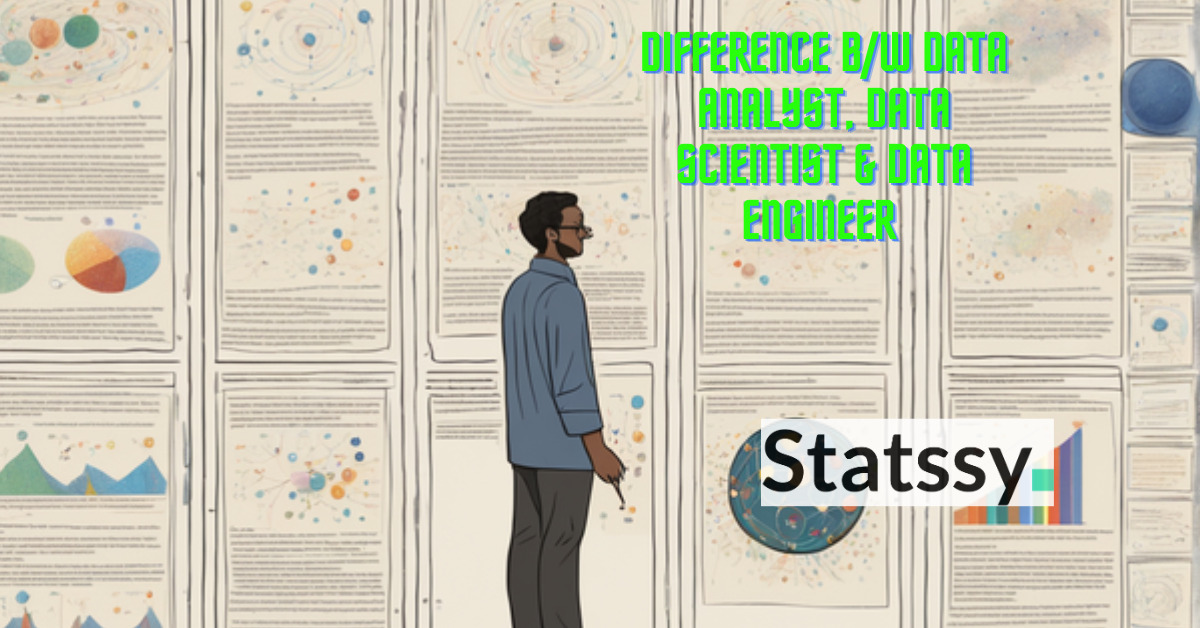Difference b/w Data Analyst, Data Scientist & Data Engineer

The three terms appear to be very similar but are different from each other.
Data Analyst, Data Scientist, and Data Engineer are three distinct roles in the field of data management and analysis.
Lets define them,
- Data Analyst: Someone who is responsible for analyzing and interpreting complex data sets to uncover patterns, trends, and insights. They use tools such as SQL, Excel, and Tableau to visualize and communicate their findings to stakeholders. Data Analysts are typically focused on descriptive analytics and reporting. They get the data directly. They do not have to build some SQL Databases self, they only use it.
- Data Scientist: Someone with combined expertise in statistics, mathematics, and computer science to develop predictive models and algorithms. They use advanced analytical techniques and machine learning to extract insights from data and make predictions. Data Scientists are typically focused on predictive analytics and machine learning. Data analysts are less focused on developing prediction models.
- Data Engineer: Someone who is responsible for building, maintaining, and scaling the infrastructure and systems that enable the collection, storage, and processing of large data sets. They work with tools such as Hadoop, Spark, and NoSQL databases to design and implement the data pipelines that feed into the data science and analytics systems. Data Engineers are typically focused on data infrastructure and data management. Unlike data analyst & scientists, they do not need to analyze data or calculate its descriptive statistics.
Till now you must be clear with how data engineer is different from other two but still the difference between data analyst and data scientist is not very clear. Lets understand the difference based on four aspects.
- Skills: A Data Analyst typically requires skills in data visualization and reporting, as well as a strong understanding of statistical methods and a proficiency in tools such as SQL, Excel, and Tableau. Data Scientists, on the other hand, require advanced skills in statistics, mathematics, and machine learning, as well as programming skills in languages such as Python or R.
- Focus: Data Analysts focus on analyzing and interpreting data to uncover patterns, trends, and insights, and are typically focused on descriptive analytics. Data Scientists, on the other hand, use advanced analytical techniques and machine learning to develop predictive models and make predictions, and are typically focused on predictive analytics.
- Responsibilities: Data Analysts are responsible for cleaning, transforming, and manipulating data to make it ready for analysis, as well as communicating their findings to stakeholders through visualizations and reports. Data Scientists, on the other hand, are responsible for identifying the relevant data for a problem, developing predictive models, and testing and refining these models to improve their accuracy.
- Problem-solving approach: Data Analysts tend to approach problems from a reporting and visualization perspective, whereas Data Scientists approach problems from a data-driven, mathematical and computational perspective.
I hope you are now clear with the differences between the three now. In case if you have any confusion, feel free to comment below. I usually reply back in 24 hours.

